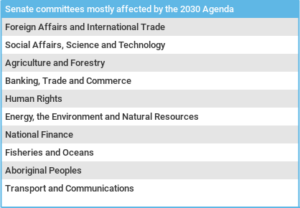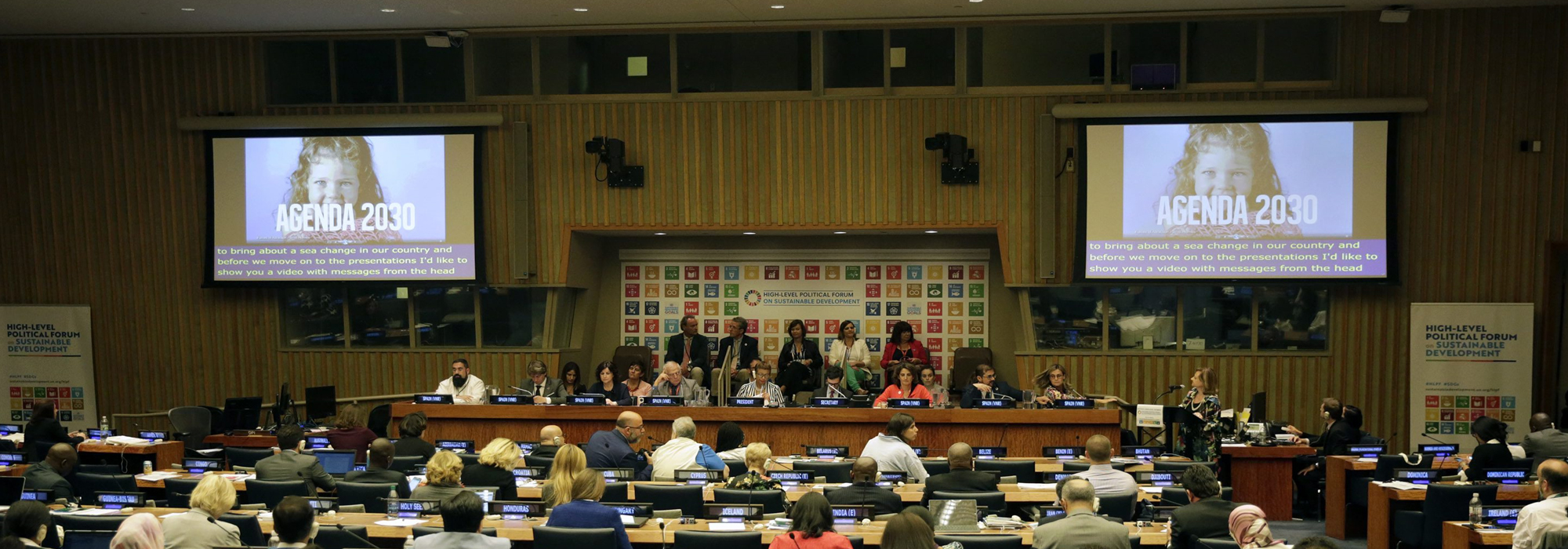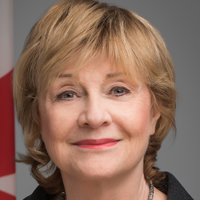
(This article has been translated from French.)
The 2030 Agenda for Sustainable Development (2030 Agenda) is a UN plan of action for “people, planet and prosperity” built on 17 sustainable development goals (SDGs). Adopted by the UN General Assembly on September 25, 2015, after extensive international negotiations, it seeks to establish a partnership among all countries in the world to overcome global barriers to sustainable development that undermine well-being and shared prosperity. It is a holistic approach that integrates the economic, social and environmental dimensions of sustainable development.
More specifically, the 2030 Agenda proposes a global response to the world’s most pressing issues. It is also based on a highly innovative approach to sustainable development:
- it connects the fight against extreme poverty and the preservation of the planet in the face of climate change;
- it incorporates the sustainable development challenges faced by all the countries in the world into a global and universal approach;
- it is the result of unprecedented consultations with stakeholders from civil society, the private sector, local communities and the research community.
The 2030 Agenda is akin to a new global social contract for the 21st century. It reflects the universal aspirations of all human beings and breaks down the 17 goals into 169 specific targets to be achieved by 2030. It is important to note that the SDGs are universal and apply to all countries, not only to developing countries. They specifically seek to end poverty; promote access to health, education and water; ensure sustainable production and consumption; protect the earth’s ecosystems; promote peaceful societies; and promote decent work and economic growth.
Canada is one of the 193 countries that have committed to working toward achieving the 17 SDGs, but recent reports note that Canada has some catching up to do to achieve its goals.
According to a July 2018 study by Bertelsmann Stiftung, entitled SDG Index and Dashboards Report 2018, Canada ranks 20th, just behind the Republic of Korea, of the 156 countries assessed by the SDG Index for overall performance, with an overall score of 77 percent. An analysis provided by the Brookings Institution published in March 2018 reveals that Canada has been successful in many areas, such as reducing extreme poverty, child mortality and premature mortality from cardiovascular disease. However, according to the analysis, in other areas, Canada must do better, especially in terms of food insecurity, childhood obesity and substance abuse. In addition, some populations, particularly Indigenous populations, are more affected than others by slow progress toward achieving the SDGs.
Because of its scope, the 2030 Agenda does not apply to central governments only. It applies to all levels of government, but also to civil society, businesses and community organizations. Clearly, significant investments will be required.
What will it take to engage the business community and the financial community? To overcome this challenge, the 17 SDGs must be pursued simultaneously. Promoting this agenda in Canada will undoubtedly be a sensitive political exercise and a significant responsibility for parliamentarians and political figures.
The Senate could have an important role to play in that area, because its role is not limited to examining bills. Senate committees also study pressing public policy issues in Canada. Recent studies that have had a significant impact include reports on mental health, palliative care and interprovincial trade barriers. In addition, the fact that senators work outside the electoral cycle allows them to have a long-term vision, which is, at its best, independent of political issues.
Because of its longevity and its institutional memory, the Senate is an appropriate vehicle to follow up on the sustainable development goals.
For all these reasons, the Senate is well placed to help Canada move forward with its commitments under the 2030 Agenda. Senate committees provide a tried-and-true structure for analyzing the problems that stand in the way of achieving the SDGs. Certain committees and goals are a natural fit. For instance, Goal 2 ― “end hunger, achieve food security and improved nutrition and promote sustainable agriculture” ― would clearly be looked at by the Agriculture and Forestry committee. For other goals, the committees would have to come to an agreement. Goal 8 ― “promote sustained, inclusive and sustainable economic growth, full and productive employment and decent work for all” ― would at least include input from the Social Affairs, Science and Technology committee, the Banking, Trade and Commerce committee and the National Finance committee.
 Because it is not subject to the electoral cycle, the Senate is an appropriate vehicle to follow up on the SDGs given its continuity and institutional memory. After all, the 2030 Agenda refers to constant, long-term and universal problems for all democratic societies such as Canada. The Senate can offer an even broader perspective now that most senators are independent, working outside the constraints of partisan politics.
Because it is not subject to the electoral cycle, the Senate is an appropriate vehicle to follow up on the SDGs given its continuity and institutional memory. After all, the 2030 Agenda refers to constant, long-term and universal problems for all democratic societies such as Canada. The Senate can offer an even broader perspective now that most senators are independent, working outside the constraints of partisan politics.
Senators could also promote the SDGs in their work outside committees, including speeches, questions, study proposals, motions and bills, as well as activities in each province, and even through the media.
This involvement would allow them to create synergies with local stakeholders, provincial and municipal government officials, and union and management representatives. There will certainly be differences of opinion on how to achieve the sustainable development goals. We must listen to them and take them into account so that Canada can adopt the most effective strategies to achieve the targets by 2030.
The year 2030 is fast approaching. The 2030 Agenda will allow senators to focus their energies on helping Canada make a sustainable contribution to building a better world.
This article reflects the personal ideas of the senator alone.
Photo : A video display broadcasts the Agenda 2030 during a ministerial meeting of the 2018 High-level Political Forum on Sustainable Development at United Nations headquarters in New York. EPA / Jason Szenes.
Do you have something to say about the article you just read? Be part of the Policy Options discussion, and send in your own submission. Here is a link on how to do it. | Souhaitez-vous réagir à cet article ? Joignez-vous aux débats d’Options politiques et soumettez-nous votre texte en suivant ces directives.









